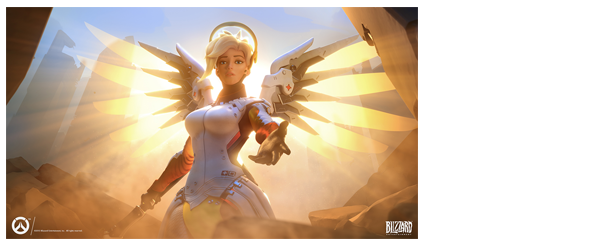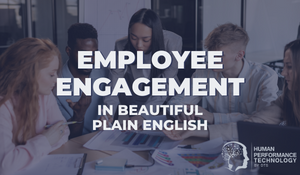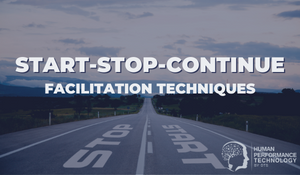4 Principles for Coaching & Building a Better Hero
Without doubt, video editing is the art form I most love and admire. When sound and image are put together in a certain way, by someone who is a master of the craft, the effect is, for lack of a more dramatic word, transcendent.
Movie trailers are one such example: self-contained islands of art in themselves that can be 10 times more uplifting than the movies they tease.
I don’t know what constitutes a great trailer for you, and possibly you’re still reeling from my suggestion that “movie trailers are art,” but stand-outs for me range from the new Dolittle promo, to the hot visual messes that are Ready Player One and Alita: Battle Angel, to the epic superhero smash-em-up’s of The Man of Steel, Aquaman (my personal fav), Power Rangers, and Wonder Woman, to the delightfully creepy talking snake in The Jungle Book, to this old-school “we will not go quietly into the night” fan-made trailer for Independence Day, anything related to Guardians of the Galaxy, and — very possibly the most insanely ridiculous trailer in offical trailer-making history — Suicide Squad to the accompaniment of Bohemian Rhapsody.
And Free Solo. (The film itself is the most transfixing documentary I’ve watched since Grizzly Man.)
Chills.
Anyway, underneath the glitz and flashy sparks of entertainment marketing, what I believe essentially all these videos have in common is an artistic ethos of love, even — and especially — in those apparently soulless and derivative superhero franchises. Where there isn’t any obvious or discernible creators’ intent to inspire the heart and ennoble the human spirit (what I would call a loving ethos), I would argue the product contradicts the company’s mission.
“[To] entertain, inform and inspire people around the globe through the power of unparalleled storytelling."
— The Walt Disney Company, Mission Statement
“[To] make a positive impact on the world through initiatives that encourage youth to be storytellers, create access and opportunities for new voices, and drive sustainable production."
— Warner Brothers, Mission Statement
More than prestige, money, fun or escape but affirming the philosophy of positive inspirational impact — that the way to a better world is through a better human — is what drew me to the training and development industry in the first place, one of many paths to a better human. Where film can show an idealised and possibly unattainable form of superhuman strength, courage, self-sacrifice, heroism or teamwork for mortals to strive towards, the industry to which I belong is the rubber-to-the-road frontier of unlocking human potential. We use the tools of science, reason, technology, and experience to make a direct impact on real lives, striving to build the heroes of the future we so desperately need if we want to avoid repeating the mistakes and catastrophes of the past, in business, in politics, and every other domain where humans leave a footprint, lest we enter some dystopian X-Men nightmare future.
Brushing up on life lesson lists recently (one of the better one’s I revisit often is Zat Rana’s 77 Important Truths I’ve Learned About Life), I found myself reflecting on some of the most important principles for coaching, that other art form of ennobling the human spirit — what has become in recent times a go-to workplace development tool and has been previously identified by Google’s HR team as the #1 trait of a great manager. Whether you manage staff, run a coaching practice, or simply want to improve your effectiveness with others in the world at large, I insist that you love, cherish, and devote yourself to these 4 gems of genius for all eternity.
First, safety and trust.
Building and maintaining trust is the implied goal of virtually all business activity, what former Mattel CEO Bob Eckert said should be your top responsibility as you go to work. And for good reason: you can’t do much without it. Clients won’t be open and forthcoming, so you won’t hear the real issues, let alone get a chance to address them, you certainly won’t get referral business, and you won’t have leverage to do what a coach is ultimately there to do: make a positive difference in people’s lives. As in marriage and friendship, trust is the foundation.
Do coaching, not consulting, therapy, counselling, or conversion.
While you may be able to “call bullshit” on your friends or relatives and have a good laugh (like in the rom-com How to Lose a Guy in 10 Days) supplying the client with your opinions and expertise is closer to consulting than it is to coaching. Business coaching is primarily non-judgmental and process focused. To coach is to deal in questions, options, and possibilities — to show them the lake, not push them in. (Please just ignore those quotes at the top.) As Morpheus would say, “I can only show you the door; you’re the one that has to walk through it.”
Fit your tools to the situation and coach the individual.
Don’t try to force fit the situation to your models, processes, and tools if the situation demands otherwise. While this may sound obvious, too many HR initiatives follow the cult of best practice, and nothing kills human creativity quite like letting your brain marinate in the “checklist mindset.” GROW, as you may well know, has become the industry gold-standard and it’s an excellent model, but it’s ultimately just that — a model. Throw away the coaching bible (by which I mean Whitmore’s Coaching For Performance) if the occasion calls for it. This principle also means understanding the individual. Who are they? What do they value? How do they prefer to communicate? How sensitive are they to feedback? That’s why we use validated assessment tools to make the coach’s life easier and accelerate the process of self-awareness for the client.
Absorb lightning, return love.
The Dalai Lama talks about how he actively practices taking others’ anger, suspicion, distrust, and giving back patience, tolerance, and compassion. And because I’m partial to movie metaphors (can you tell?), the mental image I have for this is the scene where Yoda absorbs force lightning from Count Dooku in Attack of the Clones. It is said, perhaps not often enough, that hate cannot conquer hate: only love can do that. It is “a law eternal.” But if my appeal to “coach with love” sounds too banal, I’ll appeal to common sense: Reacting to anger with anger (or even passive aggression) is like attempting to overcome a fire with gasoline. People notice and react to subtle cues in speech, tone, and body language, and this is true for all human relations just as it is for coaching. But especially for coaching.

Above: I’ve had this background image on my home computer for years. Mercy is a “healer” character from a popular online game called Overwatch, and my visual representation of some of the better coaches I’ve been fortunate enough to encounter in my life. Of course, they’re not literally angels, but some people are pretty close.
Below: take a minute to warm your heart with the new Dr. Dolittle movie trailer.
Topics:
Coaching & Mentoring
Theo Winter
Client Services Manager, Writer & Researcher. Theo is one of the youngest professionals in the world to earn an accreditation in TTI Success Insight's suite of psychometric assessments. For more than a decade, he worked with hundreds of HR, L&D and OD professionals and consultants to improve engagement, performance and emotional intelligence of leaders and their teams. He authored the book "40 Must-Know Business Models for People Leaders."



We Would Like to Hear From You (2 Comments)